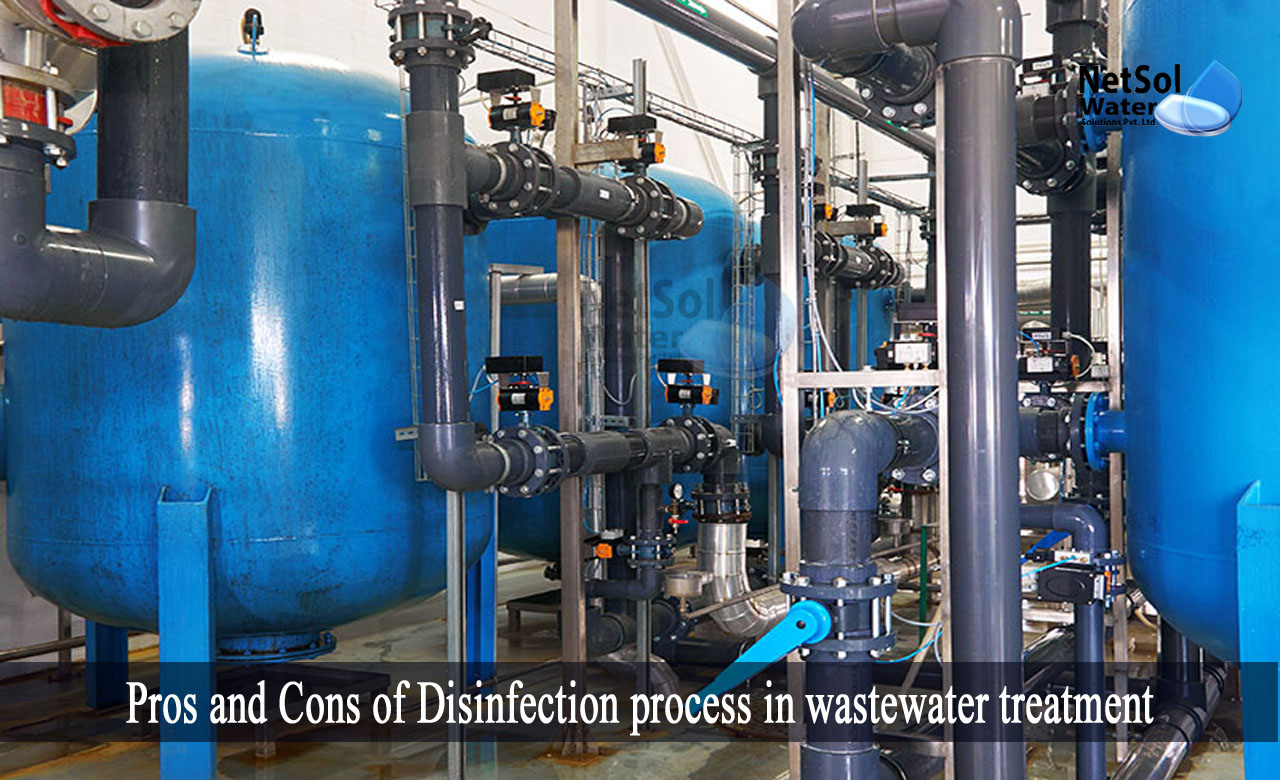What are Pros and Cons of Disinfection process in wastewater treatment?
To obtain the required treatment outcomes, each step in the wastewater treatment process is crucial. But for the whole process, tertiary care is essential. In tertiary treatment, pathogenic microbiological matter is rendered dead or inactive, so that it will not infect the organisms that come into contact with it.
Disinfection is the technique used to treat wastewater. The procedure can be carried out in a variety of ways, using either chemical or non-chemical methods, including chlorine addition or UV radiations. Each of these approaches of disinfection has advantages and drawbacks of its own, in the treatment of wastewater.
What is Disinfection?
The effluent from the tertiary wastewater treatment procedure could have bacteria, viruses, mould, cysts, or other pathogens, that other treatment methods are unable to get rid of. It is necessary to inactivate or kill the microbiological contaminants, before the treated water is released into any body of water. The two most often utilized methods of disinfection, for wastewater treatment are chlorine and UV light.
· Disinfection with chlorine
Chlorine is poisonous to living things and causes oxidative death in them. Once inside the pathogens, it starts to interact with internal proteins and enzymes, making them inactive. It then penetrates the infections' surface. Either the microorganism dies, or is unable to reproduce.
Pros of Disinfection with chlorine
Chlorine is widely accessible and reasonably priced. Additionally, due to its strong oxidizing properties, it has the potential to render enormous numbers of dangerous microorganisms inert, given enough reaction time.
Cons of Disinfection with chlorine
Due to its high volatility, chlorine can produce disinfection by-products (DBPs) that can be dangerous for aquatic life, people, and other animals. To be shipped, stored, and used securely, it needs to be handled carefully. Cryptosporidium, Giardia, and viruses are unaffected by chlorine disinfection.
· Ultraviolet disinfection
Systems using ultraviolet light for disinfection have become common in recent years, due to their non-chemical disinfectant properties. UV radiation with specific wavelengths can damage a pathogen's DNA, by severing its molecular connections. In this condition, normal cellular function is impossible, rendering viruses, cysts, and microorganisms essentially inert.
Pros of Ultraviolet disinfection
Since, UV disinfection is solely a physical process, no dangerous chemicals need to be handled. No potentially dangerous residual by-products might be produced in the treated water. It requires less contact time than other tertiary wastewater treatment techniques, and is very effective against the majority of viruses, bacteria, spores, and cysts. Additionally, despite having the power to disinfect, it has a small footprint.
How can we assist?
Netsol Water believes that adopting environmentally friendly, non-chemical methods of water treatment has enormous potential. For municipal and commercial water and wastewater treatment applications, we are happy to develop, engineer, and provide our wastewater treatment systems and UV disinfection systems.
Netsol Water is Greater Noida-based leading water & wastewater treatment plant manufacturer. We are industry's most demanding company based on client review and work quality. We are known as best commercial RO plant manufacturers, industrial RO plant manufacturer, sewage treatment plant manufacturer, Water Softener Plant Manufacturers and effluent treatment plant manufacturers. Apart from this 24x7 customer support is our USP. Call on +91-9650608473, or write us at enquiry@netsolwater.com for any support, inquiry or product-purchase related query.



